Terraseed Review: The Only Honestly Plastic-free Vitamins?
This is my full review of Terraseed – a complete, vegan multivitamin in plastic-free, biodegradable packaging. Read on for my comparison of Terraseed vs. other brands with (relatively) sustainable vitamin packaging.
Let me cut straight to the point: Genuinely sustainable packaging for supplements and vitamins is extremely hard to find. While researching this Terraseed review, I’ve spent countless hours sorting through vitamin companies that call themselves sustainable. Very few really live up to their claims.
What’s in this review:
How hard is it to make plastic-free vitamins?
At the very least, companies could put vitamins in glass jars, right? Or – even better – in some kind of paper packaging that’s both recyclable and compostable?
Apparently though, the answer is very hard. That’s what I learned from several vitamin company CEOs, who are at various stages of making it happen.
And it’s why I’m so impressed by what Terraseed has created: Ethically-sourced, sustainable, vegan vitamins in uniquely plastic-free packaging.
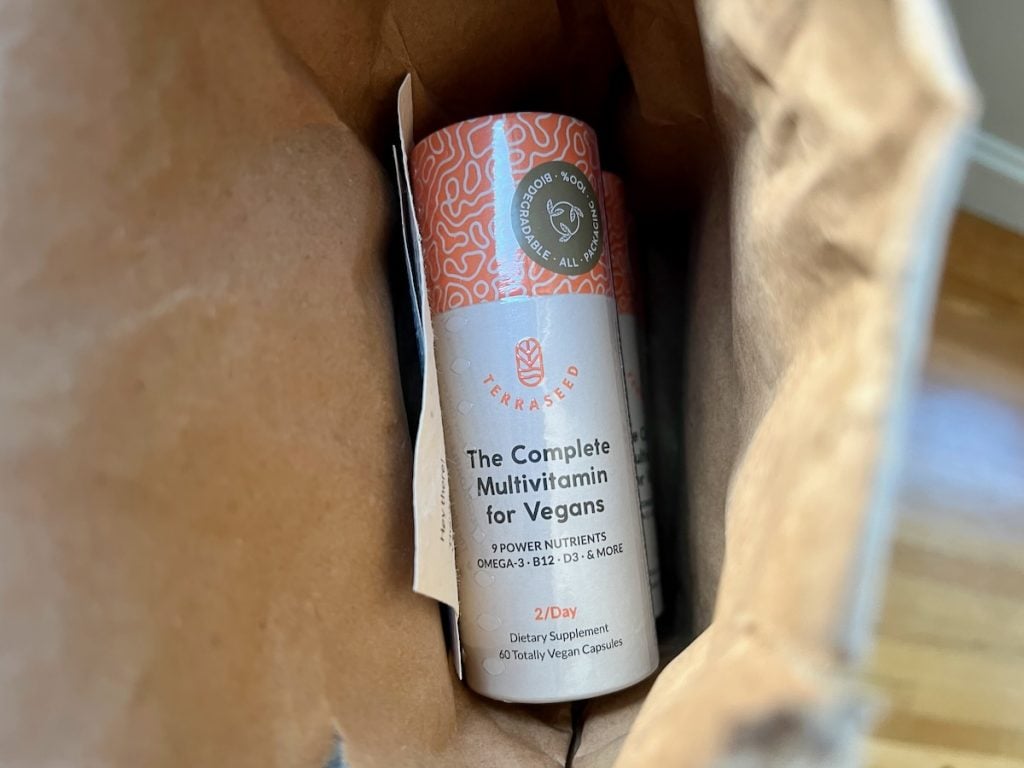
And while they’re labeled “vegan vitamins,” Terraseed’s multivitamins include nutrients that most people – not just vegans – might not get enough of from food.
That was my situation. Despite eating pretty well (lots of veggies and legumes, minimal meat and sugar, home cooking almost every day that I’m not traveling), I found myself with a Vitamin B12 deficiency.
(Although it shouldn’t have been all that surprising. Along with omega-3, vitamin D3, zinc and others, vitamin B12 is a tricky nutrient to get from a vegan, vegetarian, or mostly plant-based flexitarian diet, like mine.)
So as a product reviewer who loves details, this was the perfect opportunity to test Terraseed. After all, most of us who take supplements do so on a hope and a prayer – just assuming they’re doing something for us, but never really knowing for sure.
(Spoiler: After a few months of Terraseed, I took a second blood test and was back in the healthy range for B12.)

Happy to be back in the green.
Why I chose Terraseed
As I mentioned above, I did a lot of research on plastic-free vitamins before trying Terraseed. To put it bluntly, the options are slim. Most supplement brands just aren’t bothering with sustainable packaging. So Terraseed really stood with its compostable and recyclable cardboard tubes for every vitamin order. (Not just for refills – like a few alternatives I compared, below.)
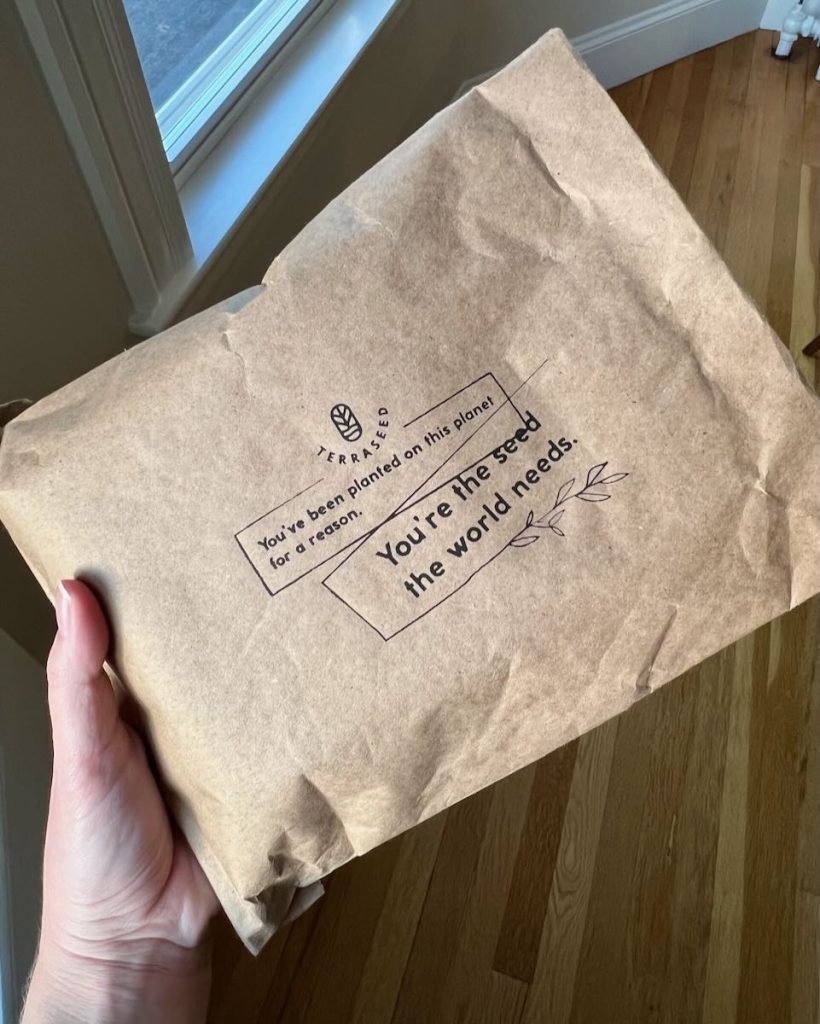
And for now, their plastic-free, vegan multivitamins are the only product they make, but they’re working on creating a few more formulas in 2023:
- A kids’ gummy multivitamin for vegan and vegetarian kids
- Vegan omega 3
- Vegan vitamin D3
- (Omega-3 and vitamin D3 are already in the multivitamins. The new products will be stand-alone supplements – I’ll update this here when they’re available!)
As I’ll dig into below, Terraseed’s process for bringing new formulas to life is anything but off-the-shelf, so the process isn’t quick.
Terraseed Pros and Cons
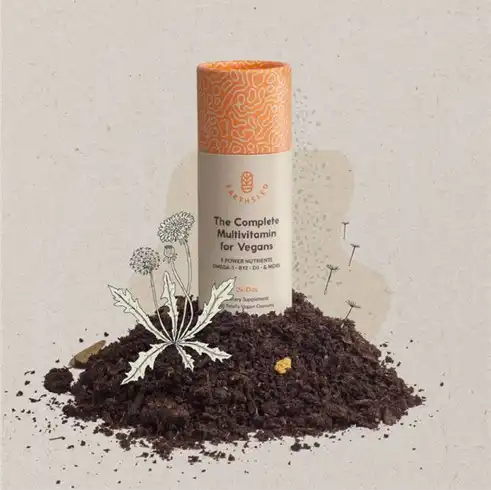
Terraseed Pros & Cons
- Obviously, the entirely plastic-free packaging and shipping materials for every order.
- Small, vegan, woman-owned and -run company.
- Manufactured in the US (lower shipping emissions!)
- They seek out the most potent, easy to absorb, and sustainable sources for each nutrient.
- Informative, transparent sourcing info for each ingredient. (See the “ingredients” tab on their website.)
- Only one formula (for now).
- At $1 / day, not exactly cheap – but for reasons related to sustainable packaging and quality ingredients. (Details below.)
- Sometimes causes a bit of a “fishy” tasting burp. (Tips to prevent this below)
Fishy Vitamin Burps?
I really hoped this wouldn’t be the case, but I have to say that sometimes I get a bit of a fishy-tasting burp after popping these vitamins. This was the only real Terraseed “con” I’ve found, although it’s not nearly as bad as other omega-3 supplements I’ve tried.
My parents also tried Terraseed, and they didn’t notice any fishiness. While my husband says he can’t stand it. (But, as I’ve documented in other reviews, he’s definitely pickier about these things than most people.)
- Fish Burp Tip: I found that two small changes helped a lot: Taking the two daily vitamins separately, and not on an empty stomach. Now, I take one after breakfast and, when I remember, another after lunch. (The burps are much fewer and less strong.)
And obviously, it’s not actually fish, since there are no animal ingredients in the formula. The taste comes from algae, which provides Terraseed’s sustainable omega-3, and kelp, which provides iodine.
Terraseed told me most people don’t notice anything (which I can see, given my family survey). And they’ve added an enteric coating to minimize it. (A double coating, meaning the vitamin dissolves in your intestines, instead of in your stomach acid. The coating increases the bioavailability of the nutrients – meaning your body absorbs more of them – and decreases the fishiness.)
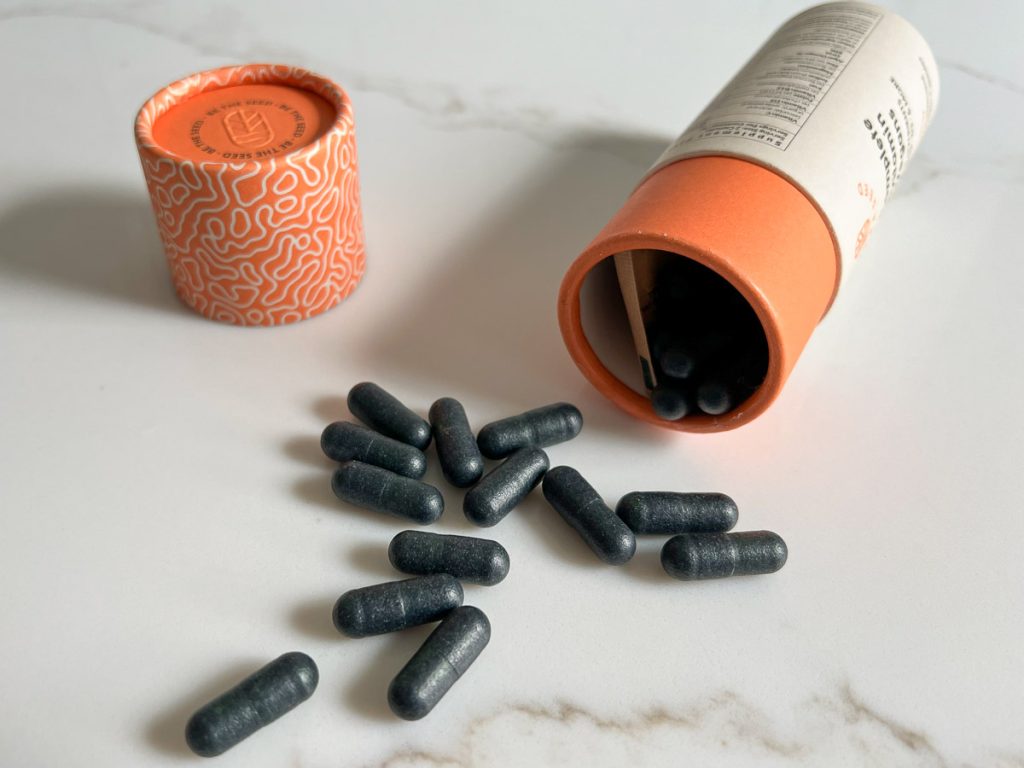
Behind the Scenes: Making Sustainable Vitamins Possible
The way the supplement industry works in the US, it’s pretty easy to start a normal vitamin company. Plastic vitamin bottles are easy to come by. And hundreds of generic wholesalers make cheap supplement ingredients (mostly out of animal products).
So it’s no surprise that the vitamin and supplement industry in the US goes through 1.8 billion plastic bottles every year.
I talked with Terraseed’s founder and CEO, Maria Cebrian, about this.
“The reason there’s such a low barrier to entry for the supplements industry is that you can buy pre-made formulations, and all you have to do is create a brand and add a label.”
Then, to start your vitamin brand, you’d just take your off-the-shelf, animal-based formula to a packaging company that throws it in some plastic bottles, and you’re in business.
But if you want to do things differently, you have to start from scratch.
That’s why Maria said sustainable packaging was one of the most difficult challenges in creating Terraseed. Even after designing their custom, compostable cardboard packaging, they couldn’t find a company to fill the containers – because they were all set up to work exclusively with plastic bottles.
It’s a detail that might not sound like a big deal, but when the industry is set up for plastic, it takes a lot of work for companies to do something better. (This is a story I’ve heard from so many sustainable small business founders – most notably this one.)
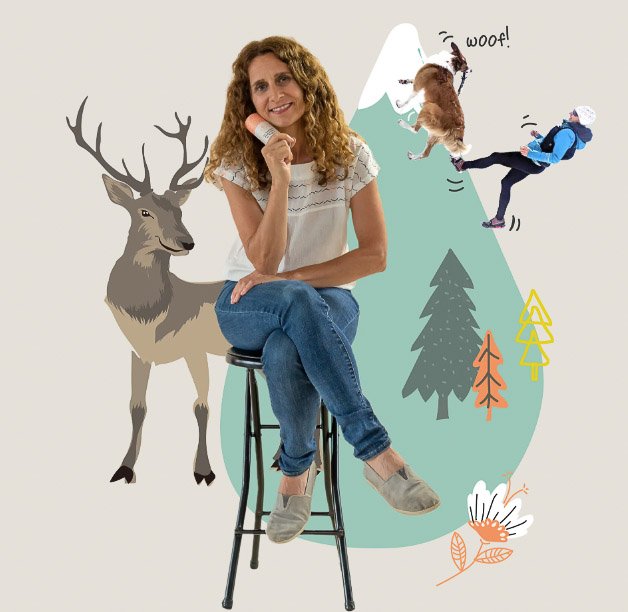
That’s why Terraseed started filling the bottles themselves, at their warehouse in Fort Collins, Colorado.
Their plastic-free vitamin bottles – biodegradable paper tubes, really – were the first thing that drew me to Terraseed. That’s because they’re so unique.
All of Terraseed’s packaging is plastic-free:
- The film around the Terraseed bottles looks like plastic, but it’s plant-based cellulose. (I’ve already composted it at home in my Lomi, and it disappeared completely after one cycle.)
- Check out my review of the Lomi countertop composter, too!
- The padding inside the tube is organic cotton. (No, you won’t be eating it, but organic is better for the land and farm workers. I save these in jar and reuse as cotton balls.)
- The mailers are recycled paper. (Easily recyclable again curbside, or reusable as shipping material again.)
- The marketing insert in each order is plantable – the paper contains native wildflower seeds! (The seeds are for North American species that are not invasive and safe for planting across the U.S. Terraseed sources these from another small, woman-owned company.)
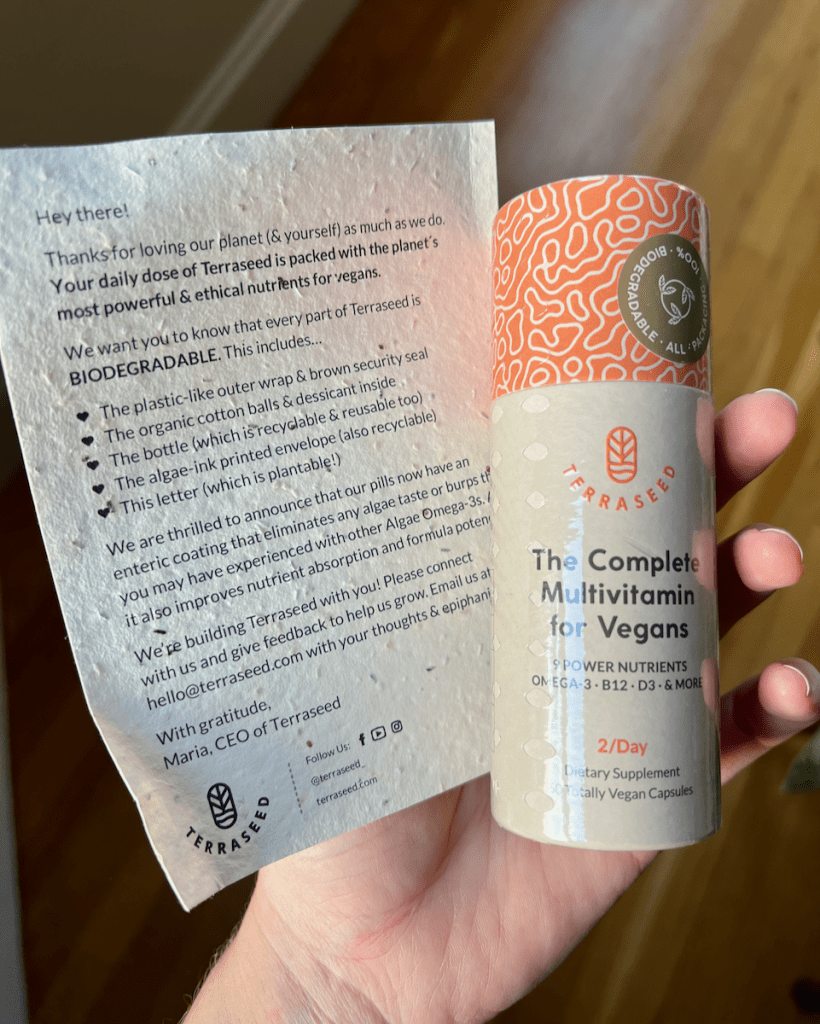
Ingredients Matter
Another thing I like about Terraseed is that they don’t just use “vegan ingredients” to check a box. (Ahem, unlike several alternative brands I looked into below.)
Instead, it’s about the quality of the ingredient, and how it’s produced. (There are many different types and sources of vegan omega-3 or vegan iron, for example, and they’re not all equal in terms of bioavailability or environmental impact.)
“It’s not just about vegan omega-3 because it’s vegan,” Maria told me. “Every ingredient we use has an aspect of sustainability and is the purest form you can put in your body.”
For example, Terraseed’s omega-3 is sustainably sourced from microalgae grown indoors – so that no marine life is disturbed to grow and harvest it. And it’s made in a facility that’s 100% powered by wind energy.
Sourcing each nutrient individually, instead of buying those pre-made formulas, makes the process slower and more expensive. But the result is higher quality and sustainability.
“You can find multivitamins on amazon – I think I found one for $7. But you have no way of knowing what’s in there.”
Why Vegan Vitamins if you’re not vegan?
Since I’m a non-vegan writing this review, and excited about a vegan product, I want to talk about why: You don’t have to be vegan to recognize that modern, industrial animal agriculture just isn’t healthy.
It’s not healthy for the people who eat the animals, the people who live near the production, the environment, or the animals themselves.
Side note: This book is a must-read if you want to learn about modern food production, including animal farming. Fascinating and readable.
And Terraseed has calculated that 24 billion animals are slaughtered every year for the US supplement industry. Not for foods that people enjoy, but for something that could be made just as effectively – and a lot more sustainably – from plants.
I don’t take issue with every animal product. But we do need to be smarter and more humane about when we choose to use them.
The main reason I’ve cut back so much on meat and dairy in my own diet is that industrial animal agriculture is a huge contributor to climate change – responsible for 15% of global greenhouse gas emissions. (It’s even worse than my travel habit.)
So I think of animal products as ingredients to use sparingly, or for special occasions. And the more vegan products I can sub out for animal products, the better.
Easy Action: Terraseed is petitioning the FDA to add a simple note in the nutrition facts labels on supplements, disclosing whether they contain animal products. You can read more about it here, and quickly sign the petition.
And most vitamins do contain animal ingredients. Including some designed to provide nutrients vegans need and labeled “for vegans.”
(Terraseed is vegan in both senses: They’re designed to supplement the nutrients that are harder to get in a vegan diet. And the supplement itself is made with 100% vegan ingredients.)




One of my favorite things about living in Italy was how easy it was to enjoy a mostly plant-based diet. (Including the vegan Pasta & Lentils recipe I shared from a relative there – the top photo.)
The “Eco-Friendly” Vegan Product Paradox
I wanted to know how Terraseed compared with their competitors, so I read through a lot of brands’ websites so that you don’t have to.
As with so many other categories of sustainable products I’ve reviewed, it’s really easy to find vitamin brands that are vegan, cruelty-free, and “clean” or “natural.” (The totally unregulated labels that beauty companies often use.)
But it’s consistently hard to find vegan and “eco-friendly” products that aren’t packaged in plastic.
Examples: Deva and Garden of Life are two popular vegan multivitamins. Deva advertises not using animal ingredients. Garden of Life points out that the company is carbon-neutral (through offsets) and “has been committed to sustainability since its inception.” What exactly that means isn’t clear, because both use plastic bottles for all of their vitamins.
The same goes for Hippo 7, a newer vegan vitamin company that still puts its products in anything-but-sustainable plastic packaging.
Even Ritual, a certified B Corp, hasn’t bothered with plastic-free packaging. And while they talk a lot of about the “traceability” of their vegan ingredients, it’s mostly about the country where they’re sourced from. Which has nothing to do with whether they are or are not sustainably produced.
Terraseed vs. All the Other “Low-waste” Vitamin Brands
The companies below are at least moving toward sustainable packaging for supplements. But still, none are really keeping up with Terraseed (at least not in the US).
First Day
First Day makes vitamins with subscription refills in plastic pouches, instead of the plastic bottles that initial orders come in. That means less plastic, but not zero plastic. (Their products are not vegan, though.) I’d guess I’d be more impressed by First Day’s packaging if I didn’t know there was a better option out there.
Wholier
Wholier is taking bigger steps in the right direction. Their vegan protein powders come in cardboard tubes (similar to Terraseed’s, from what I can tell). And their multivitamins come in a glass bottle as the default for first orders, with refills in compostable packets.
But they use bioplastic packets for the vitamin refills, which are likely only compatible with industrial composting. If that’s not available where you live (and you don’t have a Lomi), they’ll still be landfill-bound.
Related: Check out my full review of the Lomi countertop composter!
Vegums – the Best Vegan Vitamins Across the Pond
Vegums might be the only brand worth comparing to Terraseed. They make vegan multivitamins gummies, and a few other formulas, in entirely plastic-free packaging.
But since Vegums are UK-based, the products have to shipped across the ocean (at least for the majority of you – my readers in North American). I would rather support a business closer to home, and create fewer carbon emissions from shipping.
Future Kind
Future Kind could become another legitimately sustainable vitamin brand – but their packaging isn’t there yet. Their most popular formulas, like their “Essential Vegan Multivitamins” are packaged in glass bottles.
It’s nice that they’re using less plastic, but glass is heavier to ship, leading to more carbon emissions. (Which Future Kind offsets. But offsets are often not as effective as we’d like them to be. So it’s better to not create the emissions in the first place.)
Future Kind’s vegan multivitamin gummies come in post-consumer recycled plastic bottles, which is certainly better than virgin plastic. (But not much, compared with Terraseed’s biodegradable packaging.)
Future Kind’s CEO told me they’re working on compostable vitamin packaging, with the goal of upgrading their plastic bottles by mid-2023, and eventually all of their packaging. (I’ll keep you updated here when that happens.)
Bulk Vitamins
You could buy vitamin powders in bulk and fill your own capsules at home. But every bulk vitamin powder I’ve found comes in plastic bags. Again – that’s better than hard plastic bottles, but not by much.
Personally, I have the same response to this option as to the 1,000,002 zero-waste blogs telling me to make my own deodorant. No thanks. Hard pass. It’s an option if you feel like it, but I just want companies to bother to create something better.
Complement Vitamins
Finally, Complement makes vegan multivitamins in theoretically compostable packaging. The fact that they mostly use packets for packaging (as opposed to jars or bottles) is great.
But again, since Complement uses bioplastic packets, as opposed of Terraseed’s paper tubes, you need to have access to industrial composting to take advantage of it. If you don’t, it’s another non-recyclable package in the landfill. (While Terraseed’s vitamin packaging can be composted or recycled with cardboard – one of the most commonly accepted materials in local recycling programs.)
Plus, these Complement vitamins are a lot more expensive. A two-month supply costs $89. (50% more than Terraseed.)
The Price of Going Plastic-Free
That price comparison is not to say Terraseed vitamins are cheap. They’re not. At about $1 per day, they certainly cost more than the plastic-packaged ones I used to buy. But that’s sort of by design.
As Maria put it, it’s not that Terraseed wants their product to be expensive; it’s that they want it to be good more than they want it to be cheap.
“We could make this product at least a third cheaper, but we don’t. Being 100% compostable and biodegradable is probably four times as expensive as the normal plastic bottles that our competitors are using.”
That’s the way it is for so many sustainable small companies I’ve written about.
As consumers, we have a choice between buying cheap products made cheaply, or supporting a better way of doing business.
And it’s a powerful choice, considering how much businesses shape our world. (They’re our employers, after all, and the ones making sourcing decisions that dictate whether factories produce more plastic or more compostable packaging.)
So when I think about the price of Terraseed in terms of other daily expenses, like a coffeeshop habit, or maybe a cocktail after work, $1 a day doesn’t seem bad for what you get.
As Maria told me in one of our video calls:
“It’s the smaller companies that are able to take more risks and be bold. Then the bigger brands pick it up – when they see that the ideas are profitable.”
That’s one way that the world changes. And it’s a good thing. But so far, I just haven’t found any other brands picking up everything Terraseed does, with both sustainable packaging and vegan ingredients.
I hope you found this review helpful! If you have any questions I didn’t answer, please leave them below in the comments, and let me know what you think if you try Terraseed!
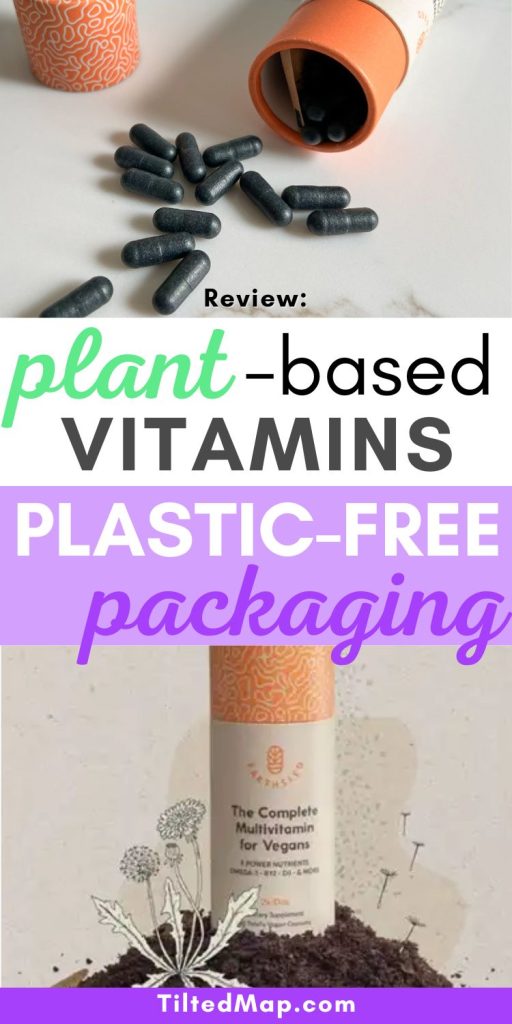
Want more sustainable products? Start with these posts & reviews:
- Short list of the best sustainable products I’ve tested & discount codes
- Review of SBTRCT solid skincare products
- Review of Activist brand REFILLABLE skincare products
- Review of the plastic-free Leaf Razor (vs. several other safety razors)
- Review & comparison of several plastic-free toothpaste tablets

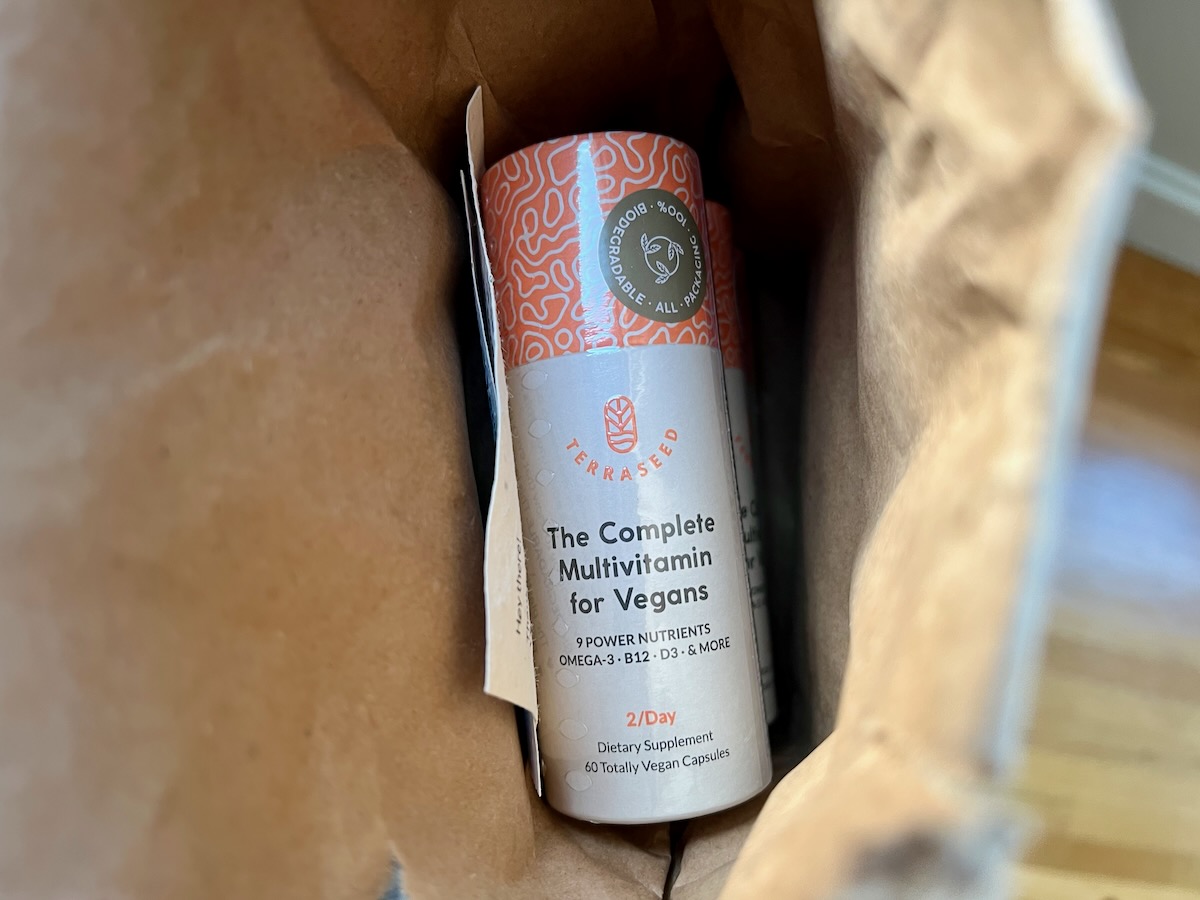
![Pasta & Broccoli [A Well-Loved Recipe Stolen from My Italian In-Laws]](https://www.tiltedmap.com/wp-content/uploads/2021/01/Broccoli-for-Italian-pasta-recipe-©KettiWilhelm2021-768x533.png)
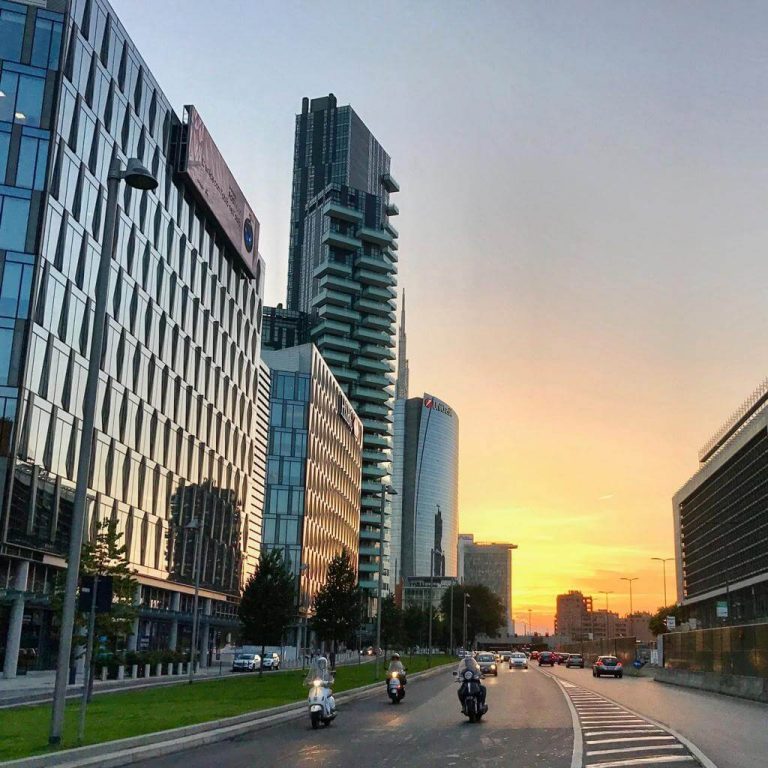
![Plastic-Free Toiletries: The Best Zero-Waste Products [That TSA Won’t Steal]](https://www.tiltedmap.com/wp-content/uploads/2020/11/Best-plastic-free-toiletries-review-©KettiWilhelm2021-768x573.jpg)

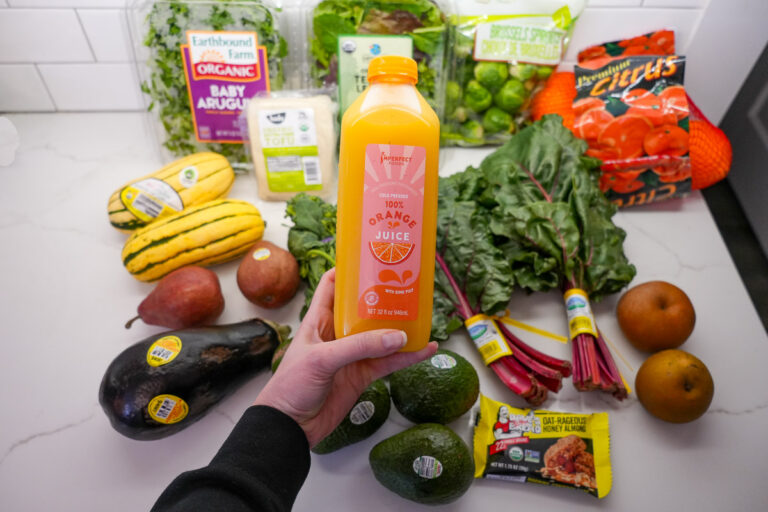
![4 Great Shampoo Bar Reviews [A Low-Pressure Intro to Plastic-Free July]](https://www.tiltedmap.com/wp-content/uploads/2020/07/Plastic-free-shampoo-bars-byhumankind-HiBAR-Ultimate-Body-Bar-©KettiWilhelm2020-768x428.jpg)
The clarity and detail in your review showcase your commitment to offering valuable information to your readers. It’s evident that you’re dedicated to promoting wellness, and your expertise shines through. Thank you for shedding light on the world of health supplements in such an informative manner.